UP IHR Conducts a 2nd Focus Group Discussion (FGD) on the Legal Capacity of Persons with Disabilities
Following its first Focus Group Discussion (FGD), the UP Law Center Institute of Human Rights (UP IHR) organized a second FGD on 13 October 2023 as part of its research project titled “A Research on the Legal Capacity of Persons with Disabilities.” Building on the key insights shared by persons with disabilities and non-governmental organizations during the first FGD, the second session took off with the attendance of several legal professionals and government officers. Notably, participants hailed from esteemed institutions including AKAP Pinoy and UP Outlaws. From the government sector, representatives from significant departments such as the Department of Education (DepEd), Department of Labor and Employment (DOLE), Department of Interior and Local Government (DILG), National Council on Disability Affairs (NCDA), Quezon City Persons with Disability Affairs Office (QC PDAO), Philippine Commission on Women (PCW), and Council for the Welfare of Children (CWC) lent their expertise, contributing to a deeper understanding of the issues surrounding persons with disabilities.
UP IHR’s Officer-in-Charge Atty. Daniel D. Lising, M.D. delivered the opening remarks, emphasizing the importance of recognizing the legal rights of persons with disabilities and the concomitant responsibility of legal professionals and government representatives in ensuring justice, equality, and human rights for all, especially for the former. UP IHR’s Law Reform Specialist and Project Head Atty. Glenda T. Litong then provided a brief overview of the project by reiterating the Philippines’ commitment to recognizing the full legal capacity of persons with disabilities as a state party to the United Nations Convention on Persons with Disabilities (UNCRPD).
Atty. Litong presented the results of the first FGD, pointing out that, in conjunction with the data that will be gathered during the second FGD, the primary goal is to gather recommendations on potential law reforms aimed at redefining the concept of “capacity” for persons with disabilities. Pertinently, she prefaced that the term “legal capacity” is not explicitly defined, but it appears to be understood in two ways. First, in discussing legal capacity, the focus should not be on the persons with disabilities—that is, whether they have legal capacity—but rather on the environment in which they belong and which will enable them to know that they possess legal capacity. Second, there’s a distinction between legal capacity as defined by the Civil Code and society’s recognition of PWDs’ legal capacity, which is crucial. This lack of societal recognition affects persons with disabilities’ daily lives, from entering contracts to accessing education and healthcare.
The FGD comprised three groups: two groups included government officers, while one group consisted of legal professionals. Its primary focus was on assessing the legal rights and protections for persons with disabilities in the Philippines and considering potential legal reforms to safeguard their rights. The discussions were facilitated by UP IHR’s Atty. James Gregory Villasis, UP Law Center Training and Convention Division’s (UP TCD) Atty. Kristine Eugenio, and UP Law Center Institute of the Administration of Justice’s (UP IAJ) Atty. Angelo Santiago.
The participants highlighted the challenges faced by individuals with disabilities in exercising their legal capacity. Legal professionals believe that there is a gap between international legal standards and their practical application on the ground. Furthermore, the existing legal framework falls short of enabling the meaningful inclusion of persons with disabilities in society due to deficiencies in funding, awareness, and the effective implementation of relevant laws. While persons with disabilities themselves have legal safeguards in place, they are rendered meaningless due to the lack of accessible information and resources, as well as the absence of support mechanisms to ensure their effective participation in decision-making processes. This leaves many individuals with disabilities marginalized and unable to fully enjoy their rights and participate in society on an equal basis.
Government officers echoed these concerns, emphasizing that people with disabilities are often lumped together as a homogeneous group, neglecting the unique needs of each individual. While anti-discrimination mechanisms are in place, there is a consensus that extensive sensitivity training is needed, especially among those responsible for upholding the rights of persons with disabilities. As duty-bearers, government officers recognized the need to tailor services, policies, and legislation to better address the diverse requirements of persons with disabilities. A multi-faceted approach involving legal reforms, public awareness campaigns, and meaningful inclusion of persons with disabilities in decision-making is also essential to bridge the existing gap between international legal standards and their practical implementation. In conclusion, the participants stressed the need for these changes to address these systemic issues and provide individuals with disabilities the opportunity to exercise their legal capacity and live independently.

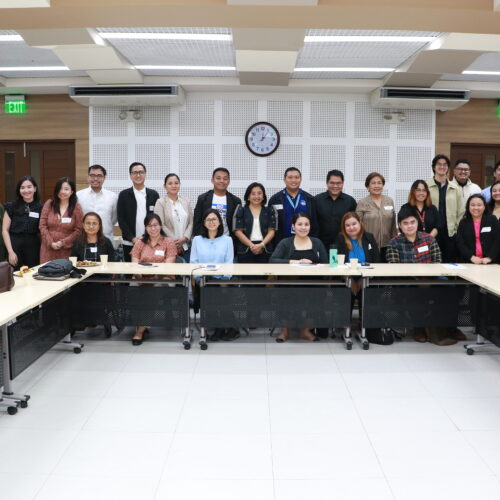
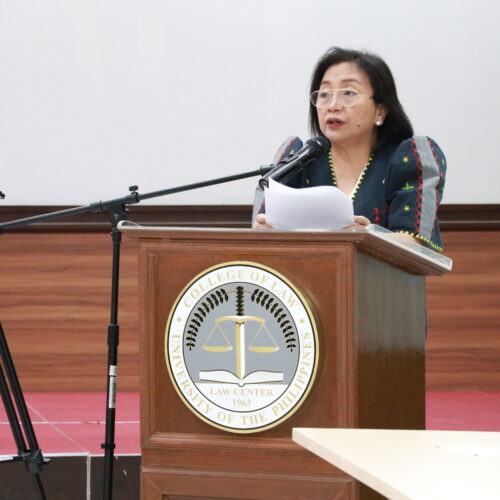
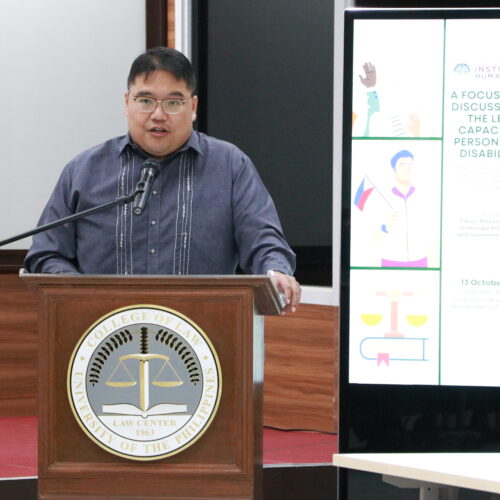
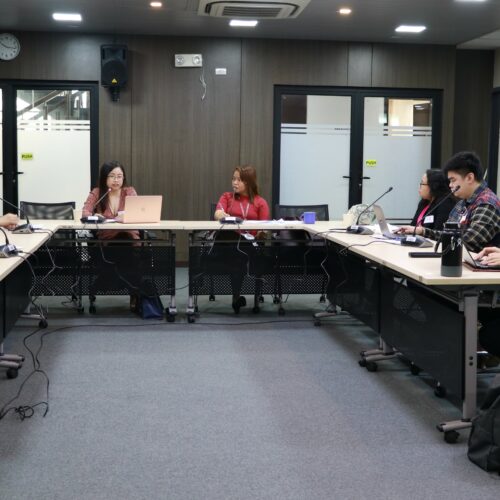
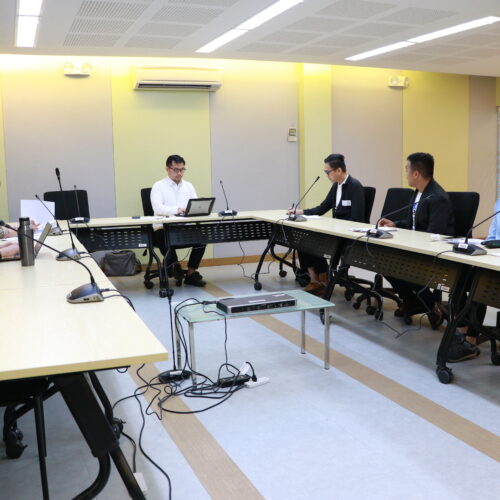
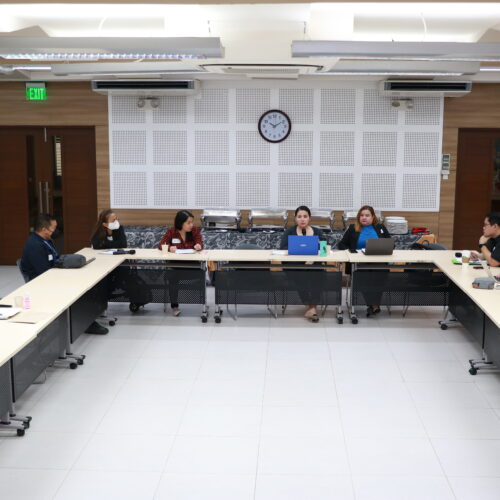






































































































 on the upper right corner to select a video.
on the upper right corner to select a video.